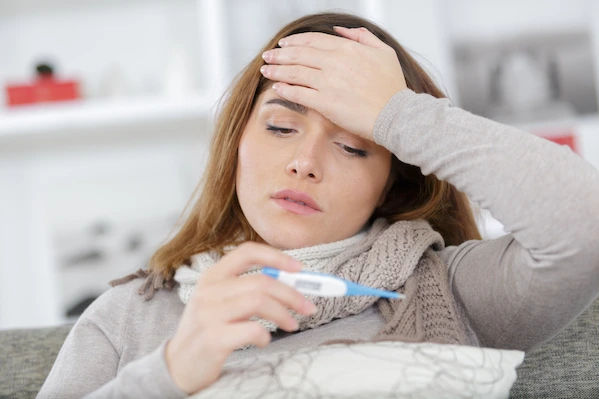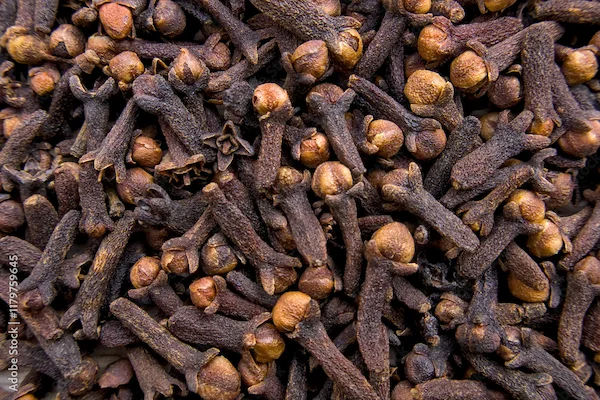Understanding STD Symptoms and Causes
Learn the symptoms and causes of common STDs like chlamydia, HPV, and HIV. Discover how they spread, their health effects, and ways to stay protected.
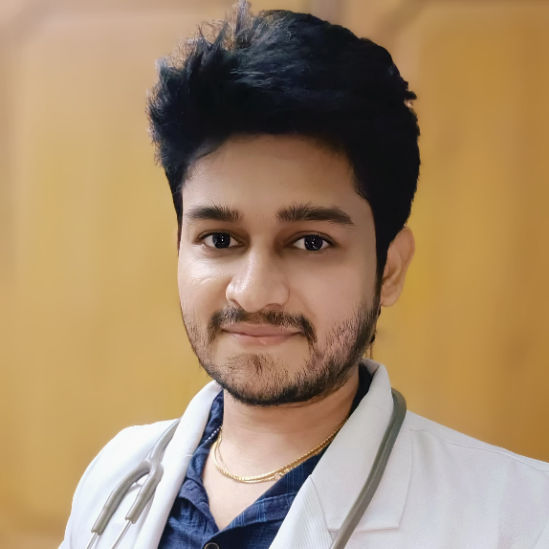
Written by Dr. Mohammed Kamran
Reviewed by Dr. Shaik Abdul Kalam MD (Physician)
Last updated on 24th Jul, 2025
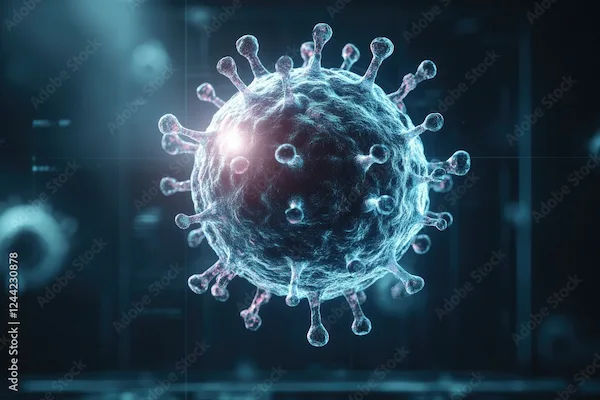
Sexually transmitted diseases (STDs), also known as sexually transmitted infections (STIs), are infections that spread primarily through sexual contact. They can affect anyone who is sexually active, regardless of age, gender, or sexual orientation. Understanding the symptoms and causes of STDs is crucial for early detection, treatment, and prevention.
This article will help you recognise common STD symptoms, understand their causes, and learn how to protect yourself and your partner.
What Are STDs?
STDs are infections caused by bacteria, viruses, or parasites that pass from one person to another through sexual activity—vaginal, anal, or oral sex. Some STDs can also spread through non-sexual means, such as sharing needles or from mother to baby during childbirth.
Common STDs include:
- Chlamydia
- Gonorrhea
- Syphilis
- Human Papillomavirus (HPV)
- Herpes (HSV-1 & HSV-2)
- HIV/AIDS
- Hepatitis B & C
- Trichomoniasis
Many STDs show no symptoms early on, which is why regular testing is essential.
Common STD Symptoms
Symptoms vary depending on the type of infection, but here are some general signs to watch for:
1. Unusual Discharge
- In Women: Unusual vaginal discharge (thick, foul-smelling, or discolored).
- In Men: Discharge from the penis (white, yellow, or green).
2. Pain or Burning Sensation
- Pain during urination or sex.
- Itching or irritation in the genital area.
3. Sores, Bumps, or Rashes
- Painful or painless sores on the genitals, mouth, or anus.
- Warts or bumps in the genital area (common with HPV).
4. Flu-like Symptoms
- Fever, fatigue, swollen lymph nodes (common in early HIV or syphilis).
5. Abnormal Bleeding
- Bleeding between periods (in women).
Some STDs, like chlamydia and HPV, may not show symptoms at all but can still cause long-term health problems if untreated.
What Causes STDs?
STDs are caused by different microorganisms:
1. Bacterial STDs
- Chlamydia, Gonorrhea, Syphilis – Caused by bacteria and can be treated with antibiotics.
2. Viral STDs
- HIV, Herpes, HPV, Hepatitis B & C – Caused by viruses. Some can be managed, but not always cured.
Consult a Top Physician For More Health Benefits
3. Parasitic STDs
- Trichomoniasis – Caused by a parasite and treated with medication.
How Do STDs Spread?
- Sexual Contact: Vaginal, anal, or oral sex with an infected person.
- Blood Contact: Sharing needles or unsterilized tattoo/piercing equipment.
- Mother-to-Baby: During pregnancy, childbirth, or breastfeeding.
How Do STDs Affect Your Health?
If left untreated, STDs can lead to serious health complications:
- Infertility (Chlamydia & Gonorrhea can damage reproductive organs).
- Pelvic Inflammatory Disease (PID) in women, leading to chronic pain.
- Increased risk of HIV (open sores from herpes or syphilis make transmission easier).
- Cancer (HPV can cause cervical, anal, or throat cancer).
- Organ damage (Syphilis can affect the brain, heart, and nerves).
How to Protect Yourself from STDs
Here is how you can protect yourself from STDs:
1. Practice Safe Sex
- Use condoms correctly every time you have sex.
- Limit sexual partners and choose partners who have been tested.
2. Get Vaccinated
- Vaccines are available for HPV and Hepatitis B.
3. Get Tested Regularly
- If you’re sexually active, get tested at least once a year.
- Get tested before starting a new relationship.
4. Avoid Sharing Needles
- Never share needles for drugs, tattoos, or piercings.
5. Communicate with Your Partner
- Have open discussions about sexual health and testing.
When Should You See a Doctor?
If you experience any unusual symptoms or suspect exposure to an STD:
Get tested immediately – Early treatment prevents complications.
Inform your partner(s) – They should also get tested and treated.
Follow treatment guidelines – Complete prescribed medications even if symptoms disappear.
How Apollo 24|7 Can Help
If you’re concerned about STDs, Apollo 24|7 offers:
Discreet and confidential STD testing
Expert consultations with doctors
Home testing kits for convenience
Book a consultation or schedule a test today through the Apollo 24|7 app or website. Early detection and treatment can protect your health and your partner’s.
Conclusion
STDs are common but preventable. Knowing the symptoms, causes, and protective measures can help you stay safe. If in doubt, get tested—early action makes a big difference. Stay informed, practice safe sex, and prioritise your sexual health!
Consult a Top Physician For More Health Benefits
Consult a Top Physician For More Health Benefits

Dr. Lakshmi Sindhura Kakani
General Physician/ Internal Medicine Specialist
10 Years • MBBS, MD (General medicine)
Visakhapatnam
Apollo 24|7 Clinic - Andhra Pradesh, Visakhapatnam

Dr. D Bhanu Prakash
General Practitioner
10 Years • MBBS, AFIH, Advanced certificate in critical care medicine, Fellowship in critical care medicine
Hyderabad
Apollo 24|7 Clinic, Hyderabad

Dr. J T Hema Pratima
General Practitioner
9 Years • MBBS
Chennai
Apollo 24|7 Clinic - Tamilnadu, Chennai
(250+ Patients)

Dr. Anshul Maheshwari
General Practitioner
5 Years • MBBS
Lucknow
Apollo 24|7 Clinic - Uttar Pradesh, Lucknow
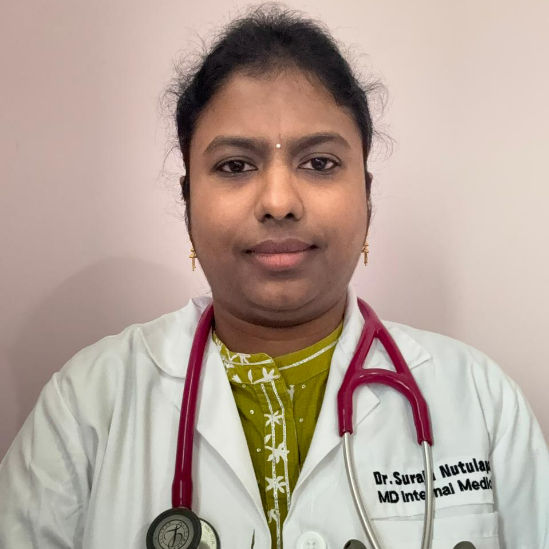
Dr. Suraja Nutulapati
General Physician/ Internal Medicine Specialist
10 Years • MBBS, MD (Internal Medicine)
Hyderabad
Apollo 24|7 Clinic, Hyderabad
(850+ Patients)

